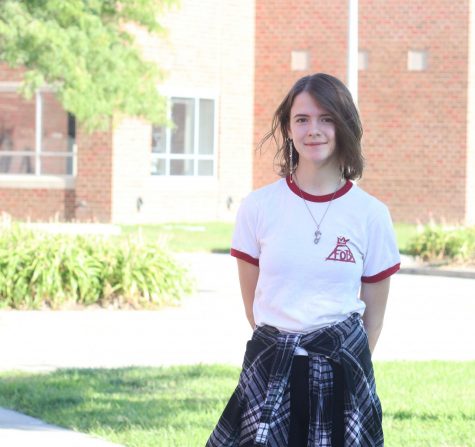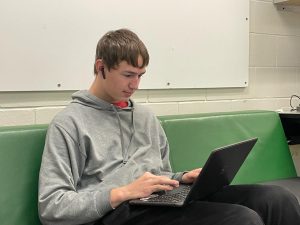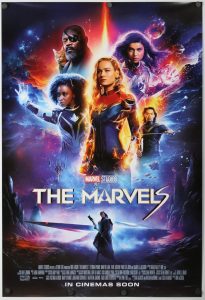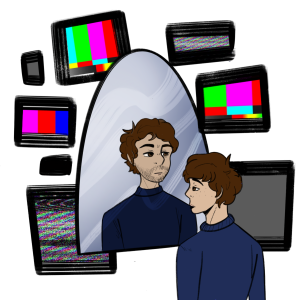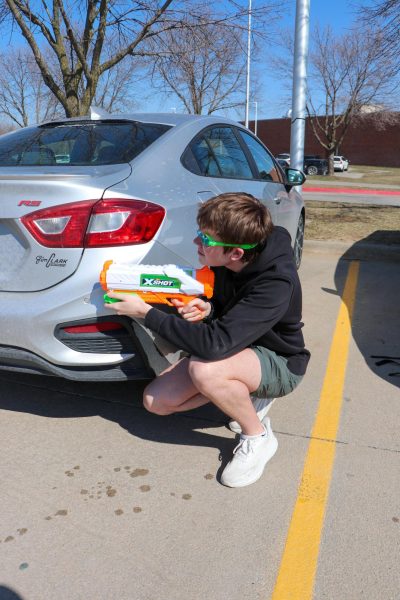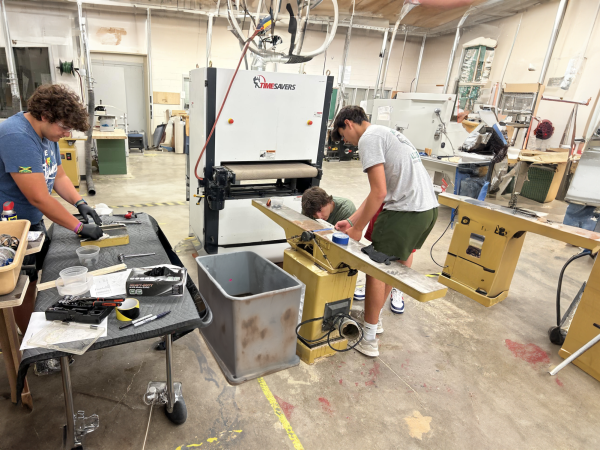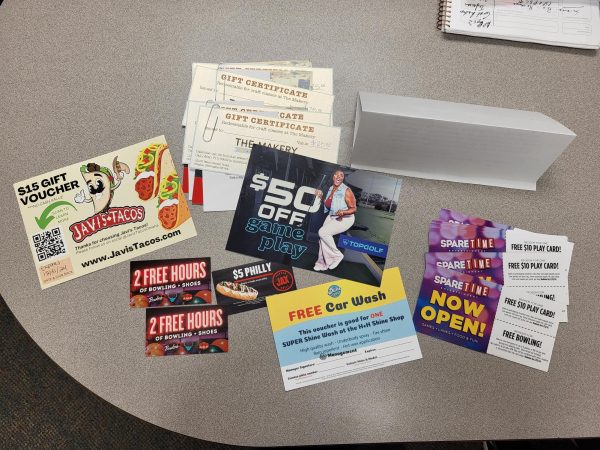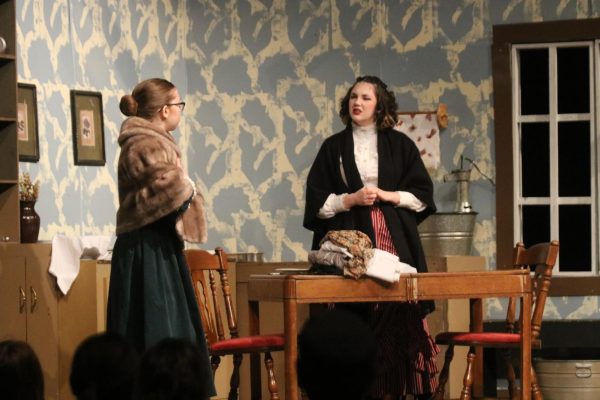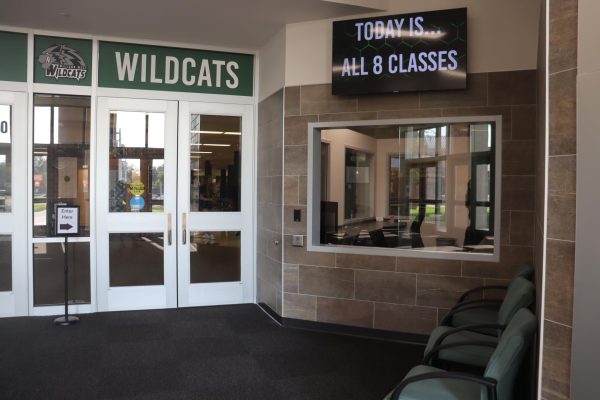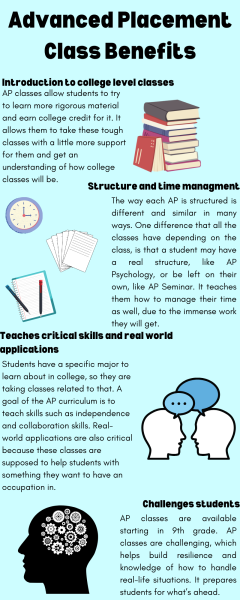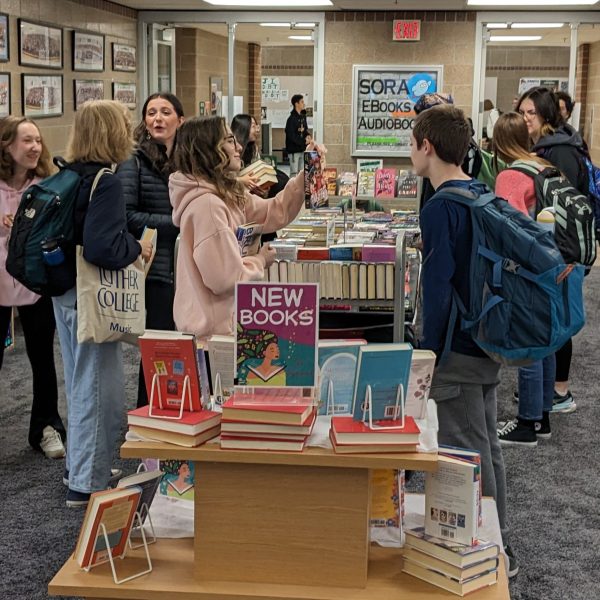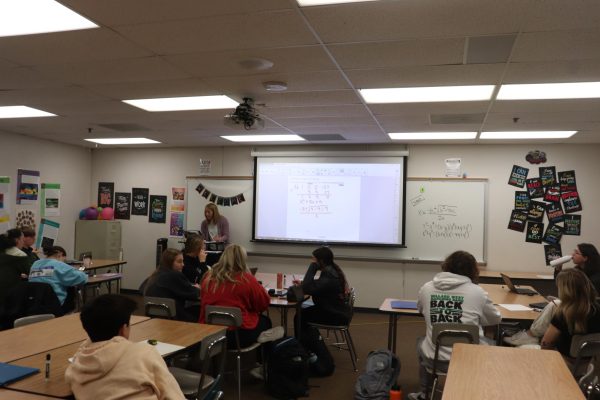A remembrance of war
Vietnam War veteran visits Honors English 10 class
Mike Spinharney, a Vietnam War veteran, visits Honors English 10 students, via zoom, to share his experiences during his time serving. “My favorite story he told was when he said there were hippy-like people not letting him through the gate when he returned home from Vietnam,” sophomore Kyle Lorimer said. “So he swung his duffle-bag around like a baseball bat and knocked them over.”
December 22, 2020
When we hear the word Vietnam, our minds usually turn to the Vietnam War that occurred between 1955 and 1975. We think of young men being sent off into battle, wondering if they would make it back to the states to see their families, friends and loved ones again. Most of us only get the chance to read about soldiers’ experiences from books. However, on Thursday, December 10, Patty Knudson’s Honors English 10 class was able to connect what they were reading with stories told by Vietnam War veteran Mike Spinharney, who was a commander for a U.S. Army Signal company.
Honors English 10 recently started to read “The Things They Carried” by Tim O’Brien. To help the students further understand what O’Brien went through when he served and make more connections, Knudson decided to bring in Spinharney to share his own experiences during the war.
“Mr. Spinharney has read the book, and he is ready to answer the students’ questions based on it,” Knudson said. “He also gives them a real person who experienced what the author wrote about to give the students a vivid recall of what that war was all about.”
During the book, students learned about the aftermath of the war and the toll it had on many of the veterans who had the chance to make it back to the country. For years, many weren’t given the chance to speak about their experiences, so when Knudson asked Spinharney if he was willing to speak to her class about what he experienced during those years, he accepted.
“I decided to do the class after Mrs. Knudson’s husband, who worked with me, asked if I’d be interested,” Spinharney said. “I wasn’t sure because I haven’t talked a lot about my time in Vietnam, but I thought I’d try one class and see how they reacted. It went very well, the students were very interested and grateful, and I enjoyed doing it. I have done it in May and December each year for maybe eight or nine years. I found it to be good to talk about it.”
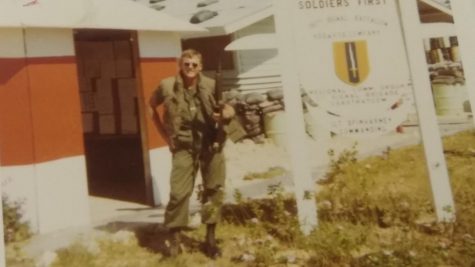
(Photo courtesy of Mike Spinharney)
Normally, Spinharney would come in person to talk to the students, however, with COVID on the rise, the class had to result to a form of online communication using Zoom. Even with the newfound obstacles, the virus threw at the class, it didn’t take away from the experience they were able to gain. They were still able to gain the view of the war from another vet, other than O’Brien.
“I thought he was very nice and smart,” sophomore Emma Schuchardt said. “He not only shared some of his personal experiences with us but also informed us about the war, how we got involved in it, and how people in our country reacted to it. He explained everything in a way that we, as high school students, could understand which made it so much more interesting to listen to.”
This wasn’t just an activity to go with the book, it was a chance for students to make deep connections to what they read with another perspective on the war. When listening to Spinharney’s stories, many students took what he said to heart.
“When he talked to me I felt sympathy for him and very disappointed in the American population,” sophomore Londyn Kind said. “The treatment he and the others received when they returned home from the horror they saw in Vietnam was nothing but ruthless and barbarous. They were called ‘baby killers’ and were looked down upon when lots and lots of people didn’t realize they had no choice.”
Some students even turned to their own relatives and finally gained the courage to ask them about their experiences during the war.
“I have had several students who, after hearing Mr. Spinharney, mustered up the courage to speak to their grandfathers about their experiences in Vietnam,” Knudson said. “Many of these men were unwilling to do so until their grandkids asked them about it because of Mr. Spinharney’s talk. I have even had a grandmother of one of my students send me a thank you letter because the discussion her grandchild had with their grandfather. It was the first time the grandmother ever heard him talk about his time in Vietnam.”
Students have been able to gain a larger perspective of the war as a whole. Having someone who actually witnessed what had happened in Vietnam, gave the students a better understanding of what O’Brien was trying to get through to them in “The Things They Carried”. With this, they could make deeper connections, ones they wouldn’t have been able to make without having Spinharney there to paint a vivid picture in their minds with his tales of the time he served.
Knudson plans to continue this new class activity for more years to come. It gives the students a better look at what the war was like from another veteran’s perspective, and it gave Spinharney a chance to talk about the experiences he, and many others, had bottled up for so long.


